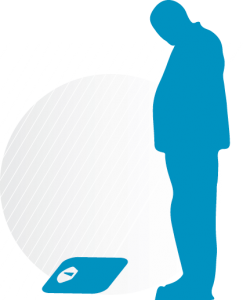Hydration and weight loss
Whether trying to lose weight through exercise, diet, or a combination of both, maintaining adequate hydration is essential to health. Eating less (and therefore consuming fewer calories) is an obvious way to lose weight, but it is essential to remember that food typically provides around 20-30% of the water we consume each day1. Half of the remainder after subtracting the contribution of food comes from drinking plain water, with the remainder coming from other beverages including tea, coffee, soft drinks and sports drinks. The potential for reduced contribution to water needs from food when dieting must be addressed by increasing the intake of foods high in water or by drinking more.


A sensible goal is to reduce body weight by 0.5-1.0 kg each week, which requires cutting down calorie intake by 3,500-7,000 calories per week (or 500-1,000 calories per day). Where possible it is recommended to cut calories by reducing dietary fat intake while maintaining protein (or even increasing it) and carbohydrate intake2. Cutting the calories in diet reduces water consumption, which should be corrected by additional fluid intake. Also important is choosing foods with a low energy density (and therefore a high water intake) such as fruits and vegetables which can keep us feeling full but that do not contain many calories.
Cutting fat from our diets would help reduce calorie intake and contribute to achievement of the above weight loss. Alternatively, energy expenditure can be increased by an exercise program: a brisk 30 minute walk will use up more than 200 calories for the average person. How much weight you will lose depends entirely on how you vary your diet and physical activity levels.

It is important to start exercise well hydrated, as failing to do so may make any exercise seem harder: the harder it feels, the less you are likely to do. We should also aim to rehydrate ourselves after any exercise program. In most cases if the exercise lasts less than an hour and is not vigorous, then water would be a good choice as it contains no calories. Other suitable options include very low-calorie soft drinks that have almost zero calories.








